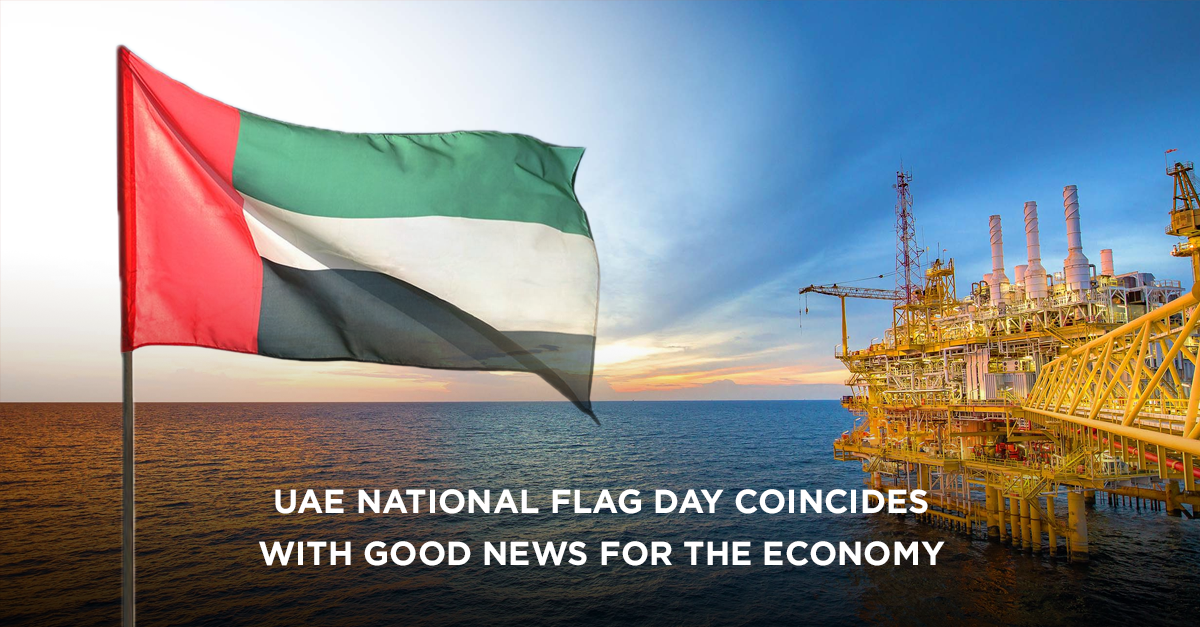Have you ever wondered about the significance of the colours on the UAE National Flag? You may be surprised to know that the colours red, green and white signify the region’s strength, courage, joy, optimism and purity, while the black in the flag specifically points towards the UAE’s rich reserves of oil. The UAE Flag day marks the anniversary of Sheikh Khalifa Bin Zayed Al Nahyan and on this date Emiratis celebrate their nationhood by reaffirming their allegiance to the UAE National flag. As a resident of some years now, I think of the UAE as a land of progress, the entrepreneurial spirit and the courage to turn challenges into opportunities.
When I first visited the UAE, one of the things that struck me was the technology, effort and ‘can-do’ attitude that was involved in the process that provided clean water to its residents. With only two freshwater aquifers, highly brackish groundwater and almost a quarter of its water coming from seawater desalination, I was struck by the effective measures that had been taken to allow a modern nation to flourish, in the face of such a fundamental challenge. Over time, what I learnt about other people centric measures that the Emirates has deployed, has led me to think of the UAE as a frontrunner in achieving dramatic change in a short period of time. If you look at the UAE and its recent advances in infrastructure, I’m sure you’d agree that the region’s leadership has been extraordinarily decisive in incorporating technology to better the daily lives of its people.
An upswing in a traditional strength
Needless to say, a defining factor of the growth trajectory of the nation has been its oil and gas reserves. So the news that the UAE’s Supreme Petroleum Council announced the discovery of an estimated 7 billion barrels of crude oil and 58 trillion standard cubic feet of conventional gas, shortly after the UAE Flag Day, was especially befitting. The discovery has re-positioned the UAE at sixth place, in terms of global oil and gas reserves, and I believe this will further empower the nation’s government to pursue even more pathbreaking and progressive initiatives.
Another piece of new that I came across recently was that the Abu Dhabi National Oil Company will begin to trade with smart contracts in the near future and implement forward pricing, as opposed to its traditional retroactive pricing approach. The report quoted Sultan Al Jaber, Chief Executive of the company as saying that the move would enable customers to price, manage and trade their purchases better. In my opinion the newly announced additional reserves will become even more significant drivers of the UAE economy, as well as the regional and global markets, in light of these new initiatives.
Building a more diversified economy – the role of Dubai
The UAE has already had considerable success in economic diversification, beyond the oil and gas sectors, and I see these segments of the economy taking an even more central role in the near to long term future. However, what I find most encouraging is that the UAE is building on the strengths of all sectors to create an integrated overall strategy, for the nation’s growth and prosperity. For instance, the recently held Abu Dhabi International Petroleum Exhibition and Conference (ADIPEC) had the theme ‘Oil and GAS 4.0’, which focused on the impact of digitization and emerging technologies on the sector.
We see a constant revolution in the UAE post the 2000s, especially in building Dubai as a tech-savvy Emirate. When oil was first discovered in the year 1966, Sheikh Rashid utilised oil revenues to spur infrastructure development in Dubai. As a result, it quickly rose to become a business and a tourism hub. In January 2006, Sheikh Maktoum bin Rashid Al Maktoum, the Prime Minister of the UAE and the ruler of Dubai, was succeeded by the Crown Prince Sheikh Mohammed bin Rashid Al Maktoum. Since then Dubai has transformed from being a trade hub to a trendsetter in luxury, infrastructure and a tech-centric business model.
Dubai has approximately four billion barrels of oil in reserve and it holds second place in terms of oil reserves in the UAE. However, you may have read that Dubai tends to consume more than it produces and it is increasingly dependent on imports to make up for the difference. In my opinion, the emirate’s role as a hub for trading in oil and energy cannot be overlooked. With Dubai and Abu Dhabi playing important roles, the UAE’s Oil & Gas sector is likely to see a boom which will in-turn provide a boost for the wider economy.
To me, the UAE’s leadership appears to be committed to creating a future-ready nation that is focussed on the welfare, happiness and prosperity of its residents, as well as being a standout contributor to the global economy and an early adopter of innovation. This UAE Flag Day was a wonderfully positive occasion and a perfect moment to reflect on the inspirational transformation of the UAE, from its formation to the present day and beyond.

